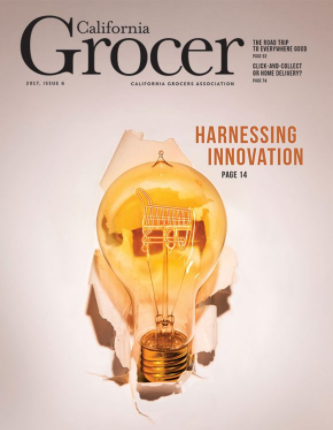Coffee Debate is Coming to a Close: A Prop. 65 Legal Battle that has been Brewing for Years May Finally be Resolved
December 2017
California Grocer, Issue 6
For the past six years, a collection of coffee brewers and retailers have been embroiled in a legal battle with Council for Education and Research on Toxics (CERT) over whether certain coffee products sold in California must include a Proposition 65 warning.
The litigation, which proceeded to trial in September 2017 before Judge Elihu Berle in the Superior Court for the County of Los Angeles, is expected to finally resolve that very question in the next few months.
Needless to say, the coffee industry, including grocers and other retailers that sell coffee and that are not directly involved in the litigation have been following the case closely. As explained in greater detail below, the outcome could have a far-reaching impact on coffee manufacturers and retailers, including potential exposure to Proposition 65 litigation and penalties, and a clear obligation to provide warnings.
California’s Proposition 65, also known as the Safe Drinking Water and Toxic Enforcement Act of 1986—or “Prop. 65”—prohibits businesses from exposing people to chemicals on the Proposition 65 List without providing “clear and reasonable” warnings.
Proposition 65 violations carry substantial legal implications as Proposition 65 authorizes monetary penalties of up to $2,500 per day per violation. In the consumer product context, each sale or each exposure to a Proposition 65-listed chemical in a product can be considered a violation. In addition, alleged violators are also required to pay the reasonable attorney’s fees of private plaintiffs who bring Proposition 65 actions on behalf of the general public.
The chemical involved in the coffee litigation is acrylamide, which California’s Office of Environmental Health Hazard Assessment (OEHHA) originally added to the Proposition 65 List in 1990 as carcinogenic.
Later, in 2011, OEHHA identified developmental toxicity and male reproductive toxicity as endpoints for acrylamide. Acrylamide forms in certain plant-based foods when they are cooked or roasted under high temperatures. Apart from coffee beans, acrylamide is also commonly found in starchy foods such as French fries and some potato chips.
CERT filed a Proposition 65 action against several representative coffee merchants including Starbucks Corporation, 7-Eleven Incorporated and Peet’s Coffee & Tea Incorporated in 2010. CERT argued that the defendants failed to provide Proposition 65 warnings when selling “ready-to-drink” coffee to consumers in California. In addition, CERT contended that the defendants committed a Proposition 65 violation “every moment” an individual consumed ready-to-drink coffee without first receiving a Proposition 65 warning.
Thus, according to CERT, the defendants are liable for a civil penalty of $2,500 for each and every sip of or exposure to coffee of an individual in California without first providing a Proposition 65 warning. CERT’s allegations amount to many millions of violations, and likewise, potentially millions of dollars in civil penalties.
Because of the substantial financial penalties at stake, some of the named defendants have opted to negotiate a settlement with CERT rather than fight the allegations. For example, in October 2017, 7-Eleven Incorporated agreed to a settlement in the amount of $900,000 and to post Proposition 65 warnings at stores throughout California. 7-Eleven’s monetary settlement amounted to $545,185.19 in civil penalties and $354,814.81 for CERT’s attorney’s fees and costs.
The remaining defendants are continuing to fight. Initially, they argued that coffee’s health benefits are not undermined by the presence of acrylamide, but the Judge found that the mere presence of acrylamide triggers a duty to warn consumers under Proposition 65.
In the second phase of the trial, the defendants are arguing that Proposition 65 warnings are not required for the ready-to-drink coffee products the defendants sell in California because there is a Proposition 65 exemption for chemicals such as acrylamide, that are produced in the process of cooking foods to make them palatable and to avoid microbiological contamination.
The Judge is expected to rule on the defendants’ arguments in the coming months, and if he rejects the defense, the next phase of the trial will focus on remedies.
Unless the Judge sides with the defendants in finding an exemption exists, coffee retailers will be required to provide a Proposition 65 warning when selling ready-to-drink coffee, and those grocers and retailers not involved in the litigation could face Proposition 65 enforcement actions for past and future sales of ready-to-drink coffee without a warning.
Although CERT’s complaint in the current litigation is limited to “ready-to-drink” coffee, it is likely that future 60-day notices and civil actions against manufacturers, grocers and retailers will extend to the sale of packaged coffee products such as coffee beans, ground coffee, and instant coffee without a warning because acrylamide is produced when coffee beans are roasted.
California grocers should determine the universe of coffee products they sell, and ensure that the manufacturers and/or distributors of those products retain any Proposition 65 liability for those products, either via agreements with those manufacturers/distributors or through other mechanisms that make clear that the manufacturer/distributor is responsible for giving any required Proposition 65 warnings.
In addition, grocers should determine whether they sell any private label coffee products, and ensure that those products include a Proposition 65 warning where required.
Patrick Veasy is an environmental litigation, environmental compliance and Proposition 65 associate in the Sacramento offices of Downey Brand LLP.
This article appeared in California Grocer, Issue 6 (2017) and is republished with permission. © California Grocers Association.

